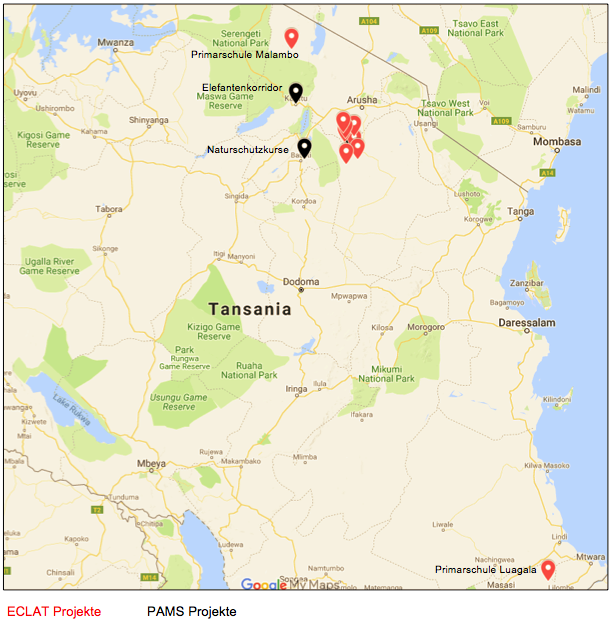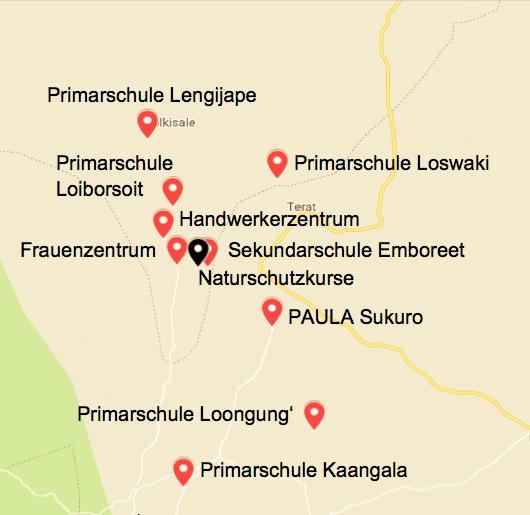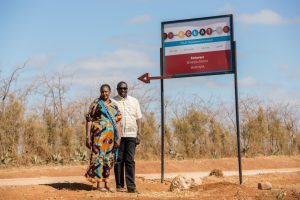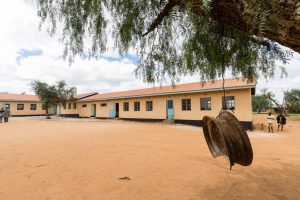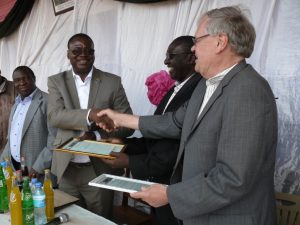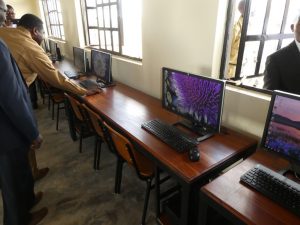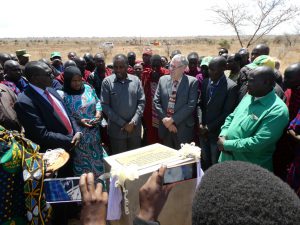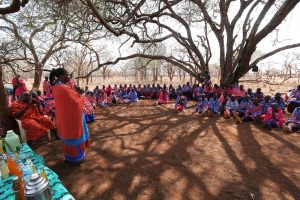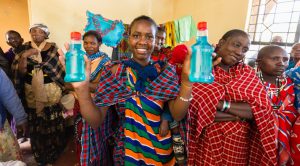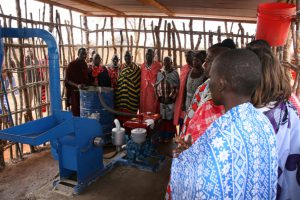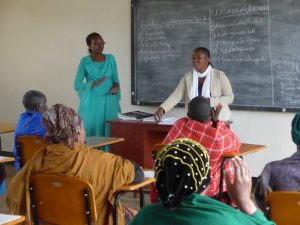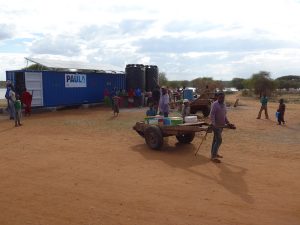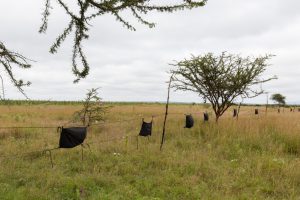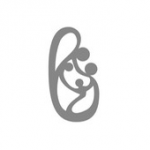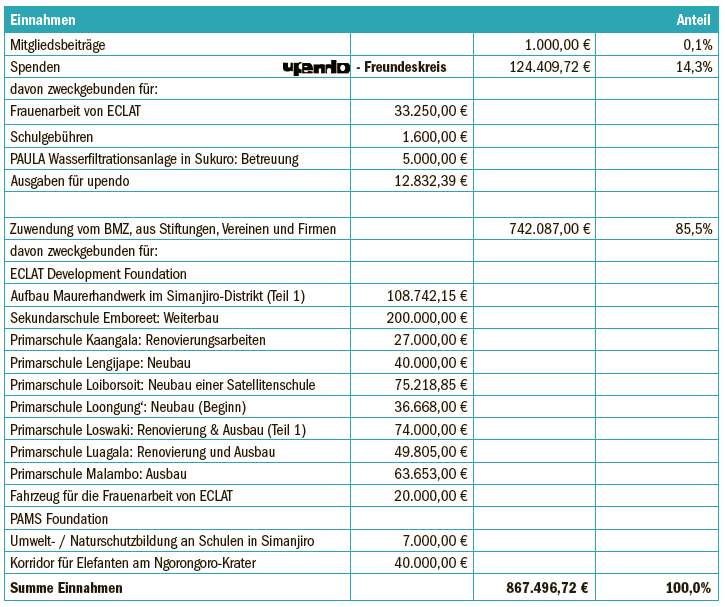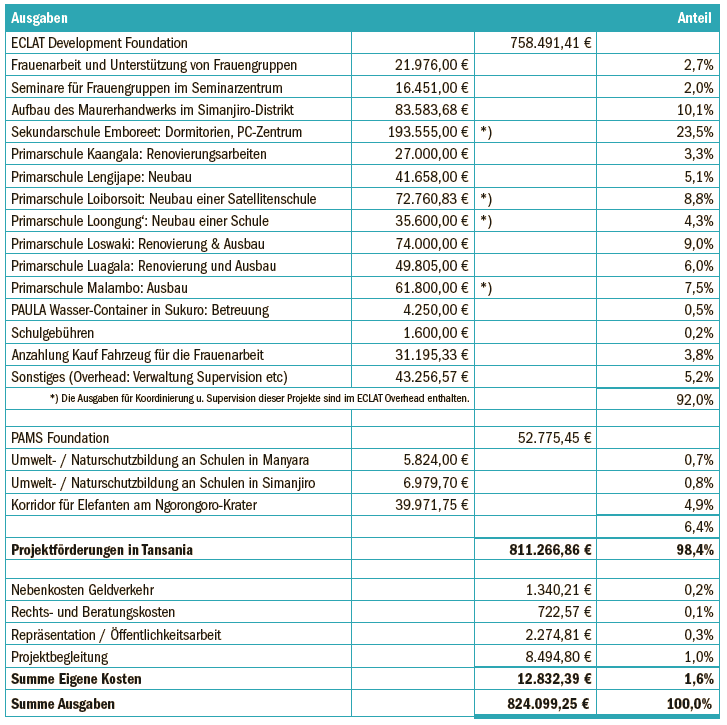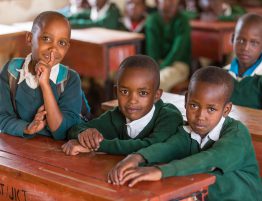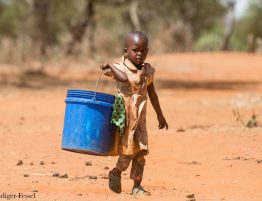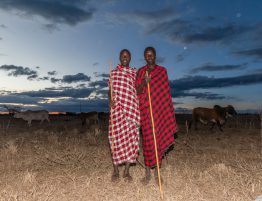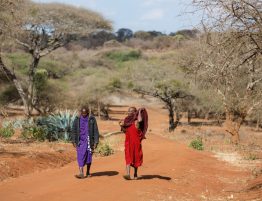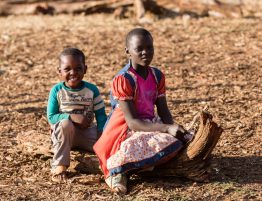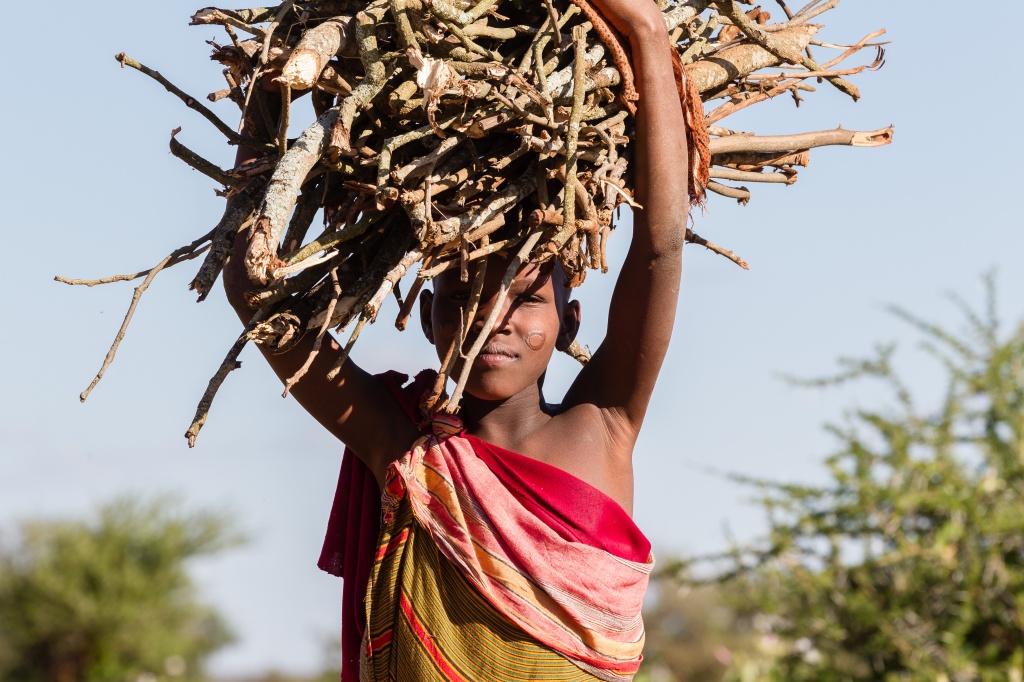

Herbert Reul, Minister of the Interior of the Federal State of North Rhine-Westphalia, Germany, and patron of upendo on behalf of MIK NRW, Photo:
Jochen Tack
Dear members and supporters of upendo,
as Dr. med. Fred Heimbach asked me if I could imagine becoming an upendo patron, I immediately pledged. Because I think the commitment of the association is unique and exemplary. Upendo shows very impressively that we can all make a difference when we do something. Carried by the idea of charity and a deep knowledge of the country, its culture and people, upendo in Tanzania is advancing important projects. It’s about education. It’s about health. It’s about equal opportunities. In short, it’s about making people’s lives better. It is my personal concern to make the important work of the association even better known. I look forward to working on it as a patron in the future. And I hope that together we can do more for the people of Tanzania.
Yours sincerely, Herbert Reul
WHO ist upendo, HOW does it work and WHAT does upendo do?
upendo is an association that promotes development cooperation at the local level in Africa, especially in Tanzania. The project work is planned and carried out in close cooperation and coordination with the state government, which ultimately bears the responsibility for the country and its people. During more than 20 years of project work Dr. Fred Heimbach, the founder of the association, has built up a large, effective network of local leadership from development projects and state politics. The regular consultations in Tanzania at the district and government level as well as with the German Embassy are an important and groundbreaking foundation of our work.
At upendo only locals work on site. In our two partner organizations, ECLAT and PAMS, all project leaders are skilled locals who want to help their compatriots out of poverty and backwardness and shape their cultural progress themselves. Familiar with the culture of their fellow human beings, they can make fundamental changes and communicate in a way that they find acceptance.
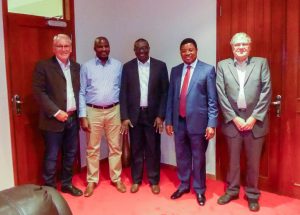
Visit to the Prime Minister (from left to right: Joachim Buchmüller, Bakiri Angalia, Toima Kiroya, Kazim Majaliwa, Fred Heimbach, 15.08.2018)
In August 2018, during the meeting in the state capital Dodoma,Prime Minister Kazim Majaliwa especially welcomed our efforts to support state schools in the country. The financial means of the Government are far from sufficient to keep the many schools in the country (about 15,000 primary schools and 3,500 secondary schools) in an acceptable condition. Majaliwa, on behalf of the Tanzanian government, thanked the people and organizations in Germany who are helping through upendo and ECLAT to improve the educational situation in Tanzania. In addition to the construction of schools upendo is also committed to the empowerment of women in the Maasai culture. Also in the field of conflict between man and nature together with our partner organization PAMS we want to work on achieving a sustainable coexistence of the country` s national parks of the country and the adjacent inhabitants.
Where does upendo operate?
Partner organization ECLAT
Toima and Philomena Kiroya founded the ECLAT Development Foundation in Tanzania some years ago to help people of their ethnic group, the Maasai, out of backwardness and poverty in a remote area of Tanzania. The focus of their work, carried out in close cooperation with project manager Bakiri Angalia, is on school education and women’s projects to empower women. Our partner organization ECLAT is considered by the state as one of the best NGOs, also because the organization spends only a small part of the money for administration.
After much effort, the acceptance of the projects has become very concrete in the population.
Awareness of the need for education and training is growing. With the approval of tribal elders and husbands, women can now have a say in cultural progress. They are allowed to gather, own personal property, attend multi-day seminars, and learn to economize. This revaluation of women is a blatant step in the cultural development of the still backward Maasai ethnic group. With incipient self-confidence and the first insights of women in economic contexts, many things can change positively. This enables a social change that empowers people to help themselves instead of remaining or becoming dependent. The first step has already been taken. In concrete terms, this also means that more parents, especially the responsible women, send their children more frequently and regularly to school. Therefore, the existing schools urgently need to be expanded or renovated; new schools are needed.
School expansion of Primary schools
Primary schools in remote parts of Tanzania, such as the Simanjiro district, are mostly in a catastrophic state – many were built in the colonial era for only a few students.,
Compared to the past a much higher number of students- often more than 100 children in each classroom – is taught in these buildings today, although almost nothing has been renovated since then. Of course, this does not motivate parents to send their children to school, especially since the school routes are often 10 kilometers and more and there are no other means of transport than their own feet. In 2018, we built a total of 7 primary schools in Tanzania: 2 schools were expanded, 2 schools renovated and 3 new schools built. It is always a special honor and pleasure to participate in the festivities to hand over a new or refurbished school to the municipality and the Tanzanian state as operator of the school.
Impression of a visitor: Besides my interest in people, I also wanted to look at the buildings from the perspective of an architect. The services of the contractor, who was commissioned with the respective complete service covering the foundation to the painting, made a stable and technically clean impression. On the other hand, I was shocked by the condition of the schools we visited in the villages of the district: classrooms with broken floors, leaking and partly missing roofs, inadequate and desolate sanitary facilities etc.
Joachim Buchmüller (August 2018, abridged)
Emboreet Secondary School
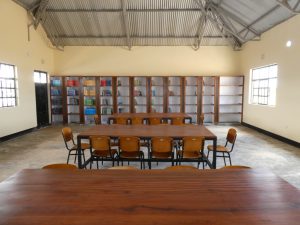 Our most important and largest school project is the construction of the secondary school in Emboreet over a 6-year period. In addition to the connection of the remaining buildings to the school’s own solar power network, ECLAT built another girls’ dormitory in 2018, a computer room equipped with 21 computers and a central library, which we were able to hand over to the government on 20 October 2018. The number of students has already risen to about 500; and the results of the final exams at the end of 2018 were really good. The handover of the new homes for teachers in February 2018 sparked great joy: The teachers are now spared long marches to school and back home which also has a positive effect on the student care and teaching.
Our most important and largest school project is the construction of the secondary school in Emboreet over a 6-year period. In addition to the connection of the remaining buildings to the school’s own solar power network, ECLAT built another girls’ dormitory in 2018, a computer room equipped with 21 computers and a central library, which we were able to hand over to the government on 20 October 2018. The number of students has already risen to about 500; and the results of the final exams at the end of 2018 were really good. The handover of the new homes for teachers in February 2018 sparked great joy: The teachers are now spared long marches to school and back home which also has a positive effect on the student care and teaching.
Laying the foundation stone for the craftsmen center
For all of our construction work in the Simanjiro district, the craftsmen come from outside the district. And: many of our students fail to graduate from secondary school with a school-leaving certificate and therefore do not qualify to study. We have therefore decided to build a craftsmen school in Emboreet to offer young people from the District a career perspective. Later they should be able to build up an existence in the district. Thanks to the support of the BMZ (Federal Ministry for Economic Cooperation and Development), the construction work for the center began in October 2018, so that in the middle of 2019 the first young people can begin their bricklayer apprenticeship.
Women’s work by ECLAT
As an educated Maasai, Philomena’s task is to improve the position of women in their society. She lives in her home village and working from there she first made sure that women get together in groups, talk to each other and try together to earn some money. For Maasai women who are normally only allowed to leave their “boma” on special occasions and whose belongings belong to their husbands, these are revolutionary changes. Within just a few years, these meetings have become a matter of course for women. The women have clearly become more self-confident and independent. And – which is at least as important: the men accept this development thanks to the influence of Toima.
ECLAT looks after 75 groups of 30 women each. At their regular meetings, women in a group talk to each other about what’s on their minds. Philomena and her contributers continuously take part in their meetings in the village. In 2018 10 women’s groups received again a “microcredit” as start-up capital. The women decide how they want to manage the money, e.g. by the operation of a corn mill, the manufacture of bricks, the production and distribution of liquid soap, by sewing etc. Some groups are very successful, others less so.
Impression of visitors: We were particularly impressed by the cultural development of the Maasai ethnic group. The progress is largely due to the valorization of the Maasai women. There are now many age-mixed groups of women who are regularly visited in their villages and are also taught several days in Emboreet in the Women’s Center with the approval of their men. We have experienced that an intensive exchange with the Maasai women is also possible non-verbally. We felt how important it was for them to have women from Europe visit them and that they considered this visit to be a sign of high.
Alina and Ute Gosger, Zita Schwarz (August 2018, shortened)
Seminar Center for the Women’s Groups
While the women usually meet for a few hours in their villages, they meet in the seminar center for a whole week where they are taught by two teachers. Most of the women have never sat at a school desk. Here they will learn important things about hygiene and health, about dealing with money, education and since 2018 also about family planning. The strong population growth of the Maasai is a serious problem. Family planning, family violence and the circumcision of the girls before the wedding are important topics. Information about contraception takes place cautiously, because the acceptance by the men is not yet very pronounced. The women are referred to state district health centers, where they can get advice and treatments, and receive sanitary products for free.
PAULA waterproject in Sukoro
In the village of Sukoro, a PAULA water filtration plant was opened at the beginning of 2017. From a reservoir in which thousands of cattle, sheep and goats bathe and drink every day, water is taken from the middle of the lake and processed in the container through membranes to produce clean and germ-free drinking water. Solar cells installed above the containers deliver the energy required for this purpose. Under the supervision of ECLAT, the village’s water committee in 2018 has reliably taken over its task of operating the plant, so that the village is supplied with good quality drinking water on a daily basis.
Partnerorganisation PAMS
With the PAMS Foundation we work together in the field of conflict between man and nature. The elephants in the world-famous Ngorongoro Crater do not only linger in the crater, but embark on centuries-old hiking trails. However, the strong growth of the Tanzanian population means that people create fields in more and more areas of the country. During the rainy and harvest season also the elephants like to come to the fields to eat them bald – and people are starving. At the Ngorongoro crater, PAMS built a protective fence in 2018 along the fields of a corridor: the “fence” consists of cloths dipped in chili-brew. The sense of smell of elephants is highly sensitive, they stay away from the fence. During the nocturnal wanderings in the corridor not more elephants have entered the adjoining fields or in the villages. The farmers learn to protect themselves and their fields and to live with the wild animals. Only then are they willing to accept the national park idea and the right to life of the wild animals. After all, the national parks are an important source of income for the country.
In a series of secondary schools east and west of the Tarangire National Park, PAMS in 2018 also carried out the educational project “Living in Harmony with Nature”. We want to increase awareness of the importance of wildlife and the conservation of natural resources in the population. The “club” is very popular with the students. They learn about the meaning of nature and animal protection and the planting of trees, and they visit the national parks. They learn to understand the relevant and most important environmental problems of their region. The teaching and learning material developed by PAMS is of high pedagogical value. It has been successfully implemented in schools, so that the increase in learning in the understanding of contexts can be clearly recognized.
Income of upendo in 2018
upendo would like to thank all those who support our work in any way, also on behalf of the people concerned in Tanzania.
Special thanks for the support granted to upendo in accordance with the Cash Report 2018 goes to the Circle of Friends and the following organizations:
Expenses of upendo in 2018
According to the cash report in 2018 upendo had the following expenditure for the realization of the projects in Tanzania:
For upendo transparency is a central issue. Our annual cash reports are subject to an external audit by the independent external tax consultancy JC Junga Consulting GmbH in Solingen, Germany. The records underlying the 2018 upendo cash report were also reviewed by this tax consultancy and assessed for compliance. The tax consulting firm JC Junga Consulting GmbH has certified in the letter of 11.04.2019 the correctness of the cash report for the year 2018, which is also published on our homepage, indicating the cash balance at the beginning and end of 2018.
Information event on April 14, 2018
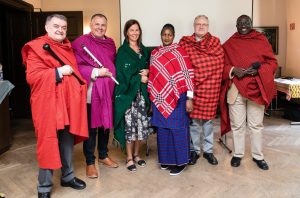
from left to right: Minister of the Interior Herbert Reul, Mayor Frank Steffes, Rebecca Trienekens-Domrös, Philomena Kiroya, Fred Heimbach, Toima Kiroya
Philomena and Toima Kiroya expressed their appreciation and gratitude at the upendo information event on April 14, 2018 in Leichlingen, Germany. They gave to Mr. Reul, Minister of the Interior of the Federal State of North Rhine-Westphalia and patron of upendo, as well as to Mr. Steffes, mayor of the city of Leichlingen, a traditional Tanzanian present: typical local clothing and a shepherd’s crook – for the Maasai a symbol of leadership and power.
Visitor impressions: Access to education is the key to a self-determined life and the foundation for the further development of a society. The fear of the loss of traditions – probably one of the reasons why education has so far not been a high priority for the Maasai – is not ungrounded. It is therefore a difficult balancing act to point out ways and possibilities of a better future for the Maasai, without prescribing them compulsively from without. If it were possible to see further development as an opportunity and not as a threat, a great deal would have been won. The prerequisite for this is education, which ultimately cannot be achieved without education.
Sibylle Eck and Alexander Nikolakis (February 2018, shortened)
Photos: J. Buchmüller, R. Fessel, U. Gosger, F. Heimbach, A. Salzmann
Translation german to english: Marita Sand

